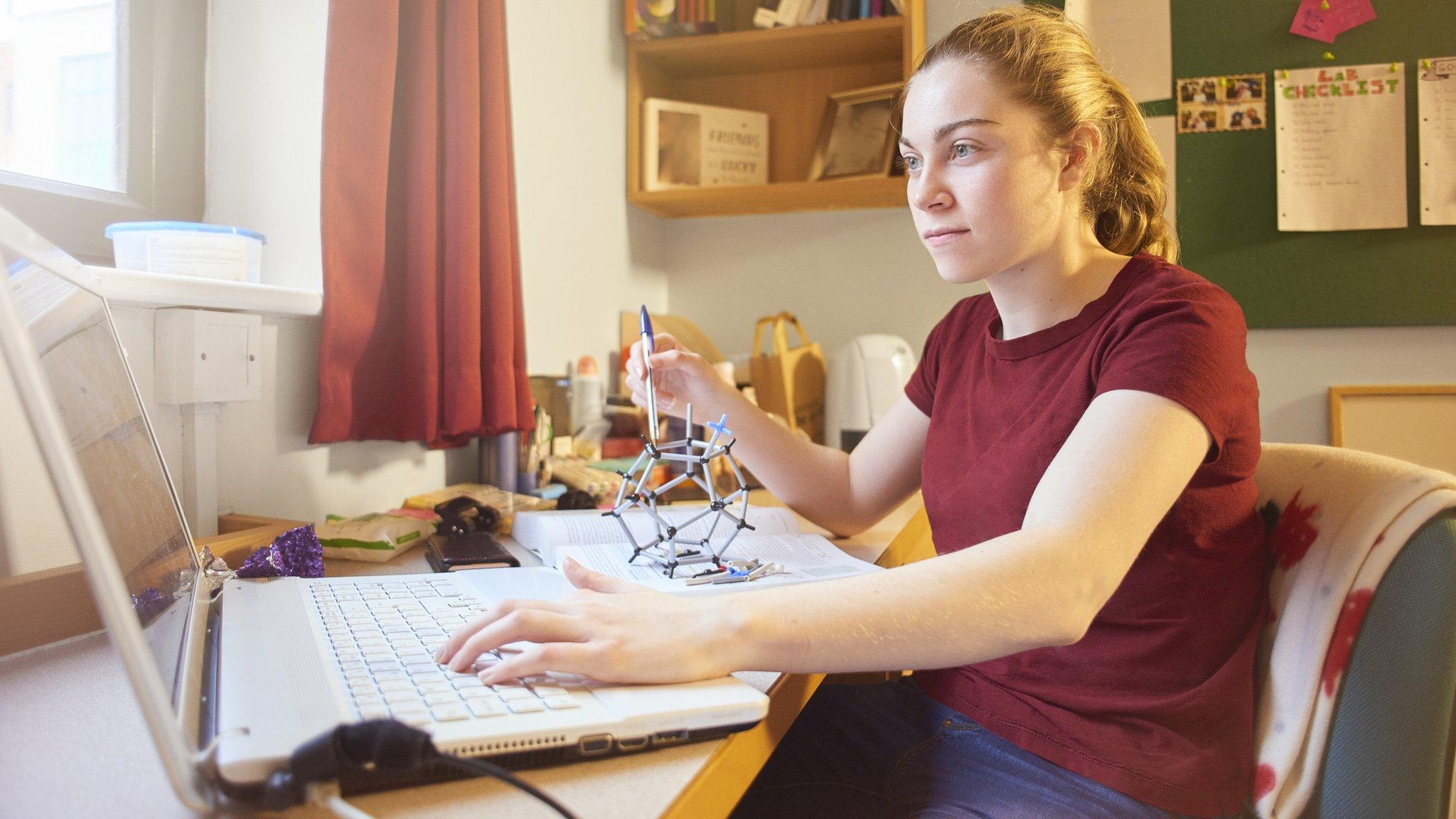Glasgow students without flats told to consider quitting university
- Published
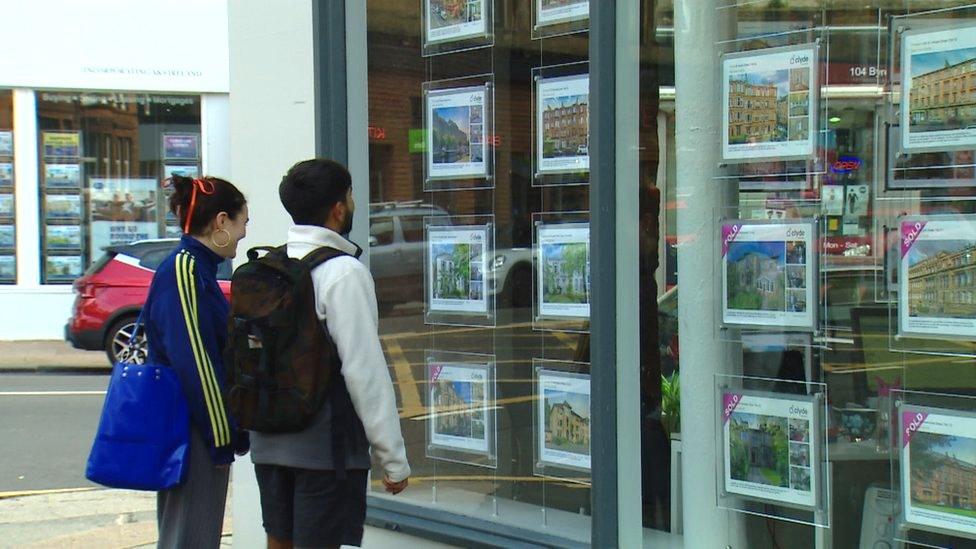
Students unable to find accommodation have been told by their university to considering deferring or even withdrawing from their studies.
Hundreds of students have returned after the summer break with nowhere to stay due to a shortage of available flats and soaring rents.
The situation has been described as "a real crisis" by some of those affected.
The University of Glasgow said it was taking a number of actions to support students.
But those affected have accused the university of "not caring" after being told to consider quitting.
BBC Scotland has seen an email in which the university tells one second-year student it "may be more appropriate for you to suspend your studies or withdraw".
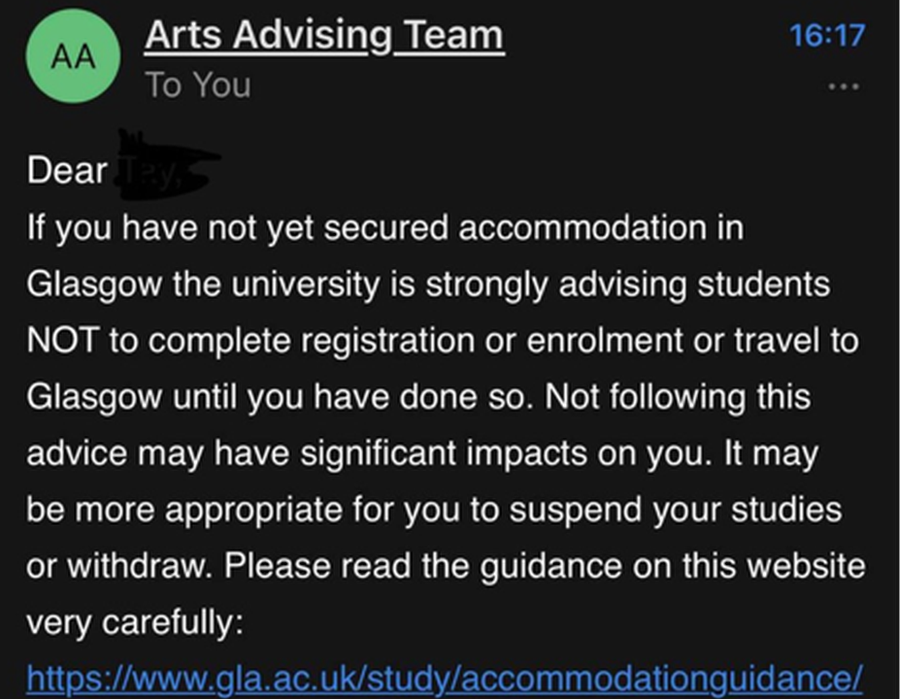
It advises people not to complete registration - or even travel to Glasgow - until they have found somewhere to stay.
The university has said demand for rooms "continues to be substantially ahead of expectation both in Glasgow and more broadly across the UK".
It added that it had increased the number of rooms under its management by 25% and was "already taking steps to increase accommodation provision for future years".
The move comes after the university announced new students would not be guaranteed halls of residence accommodation this year.
It said the number of available private flats in the city had decreased so much that there was still a gap between supply and demand.
However, it has denied the problem has been caused by accepting too many students from outside Scotland.
'They don't care about us or our education'
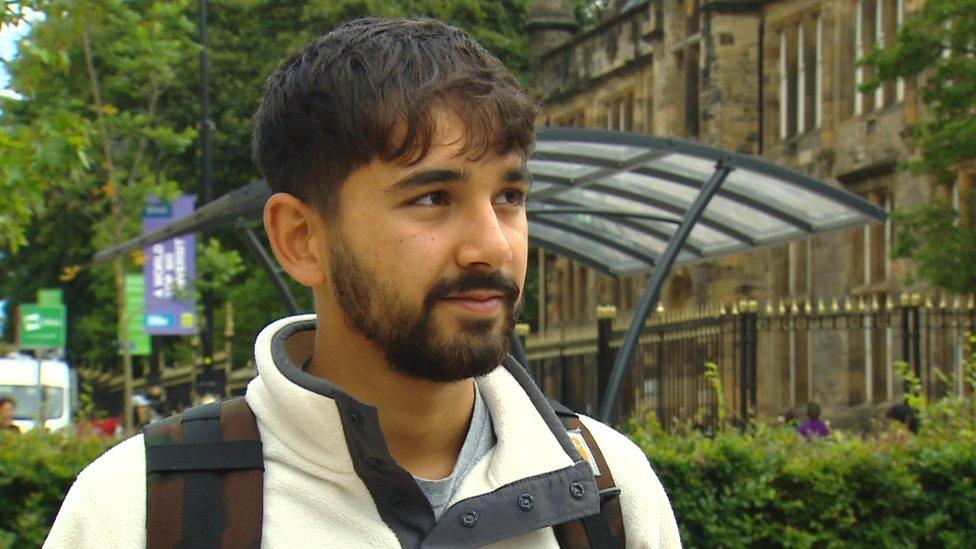
Kirshen Chadwick-Patel is about to start the second year of his business management with politics degree.
He said he had applied to rent "hundreds" of properties since February without success.
Krishen has spent the past two weeks sleeping at friends' flats, but has no idea how he will be able to make that work in the longer term.
He said the University of Glasgow email had made a terrible situation even worse.
"They don't care about our education and they don't care about us, because we want to finish our degree", he said.
"They've done nothing at all in terms of the welfare of students. There are so many students who are sofa-surfing or are houseless and have nowhere to go."
Letting laws
Kirshen stayed in student halls last year and said he accepted that priority should be given to first years.
But he has urged the university to do more to help its students.
"For now, anywhere the university could find to put us - whether it is in the vicinity or commutable - just a bed to sleep in basically.
"In the long term the government needs to do something about letting laws, to relax the market and make it easier for students to get flats.
"It has also got to be about building more student accommodation."
One concerned lecturer at the university, who did not want to be named, said emergency accommodation should be provided for homeless students.
The lecturer said: "I would describe this as a crisis for the students who are caught up in it. To be homeless is a crisis for anyone - and students who find themselves in this position are in a particularly invidious position.
"They're having at very short notice to think about whether they stay in Glasgow, whether they move back home, what they're going to do for a living.
"These are things they weren't expecting to think about as recently as a few days or a few weeks ago."
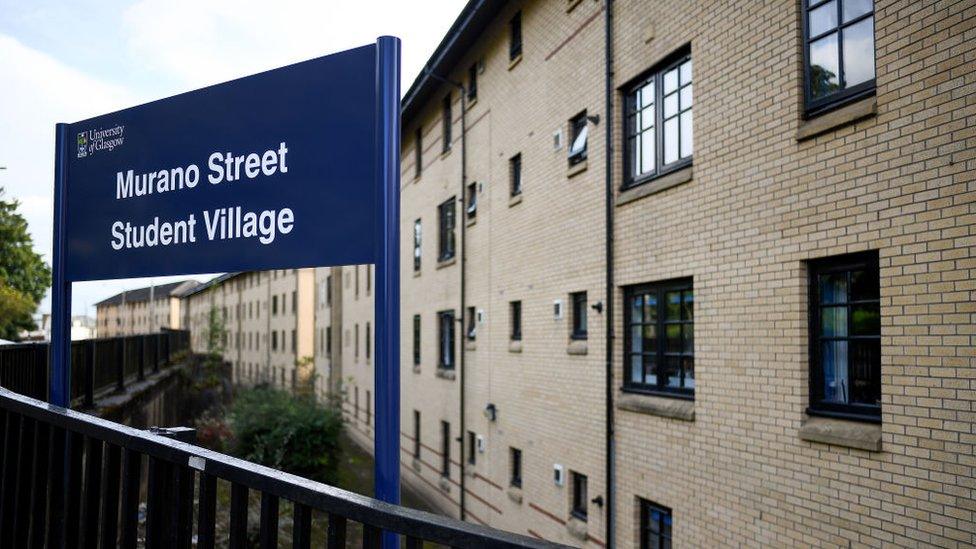
The university previously said there was not enough space to accommodate new students in halls of residence
He added: "There are things that the university can do. They really should provide emergency accommodation for homeless students.
"In addition to that, they need to lay out a plan that will ensure that no student in future is either made homeless or is forced to withdraw from or defer their studies because of housing issues."
Ellie Gomersall, president of NUS Scotland, said it was also getting harder for students to find accommodation in other parts of the country, such as Edinburgh and St Andrews.
She added: "We are seeing an increase in the number of students who are being offered places at university, which is fantastic.
"We love seeing more students going to university.
"But what we are not seeing is an increase in quality, affordable accommodation."
The University of Glasgow said it was "continuing to engage with private providers and with local government on issues with the city's private rental market".
A spokesperson added: "We understand the concern students have about finding accommodation for the new semester, and we are taking a number of actions to support our students and ensure continuity of learning wherever possible.
"In some cases, our advice may include pausing studies for this academic year while ensuring students continue to have access to university systems and services.
"Comprehensive advice is available from students' advisers of study and the Students' Representative Council Advice Centre."


Returning students in a number of university towns and cities have been finding it hard to get accommodation. The problem is complex and finding a solution is not straightforward.
In recent decades, student numbers have increased substantially - more young people from Scotland and the rest of the UK now go to university while some universities attract significant numbers of students from overseas who pay large fees.
Universities have built more accommodation of their own but they usually only offer it to first years. The private sector has had to meet much of the demand from students looking for somewhere to stay but there are concerns.
Many commercial student residences have been built but they are often relatively expensive and some private landlords find it more lucrative to use their flats as Airbnbs. There are also suggestions that since the pandemic, fewer people want a student as a lodger.
In the longer term, perhaps a number of options need to be explored. Do universities need to build more accommodation? Can steps be taken to make it easier for students to afford private sector accommodation? Can councils and housing associations play a part?
But none of this will be much comfort to someone looking for a room just now.
- Published11 August 2022

- Published7 October 2021
